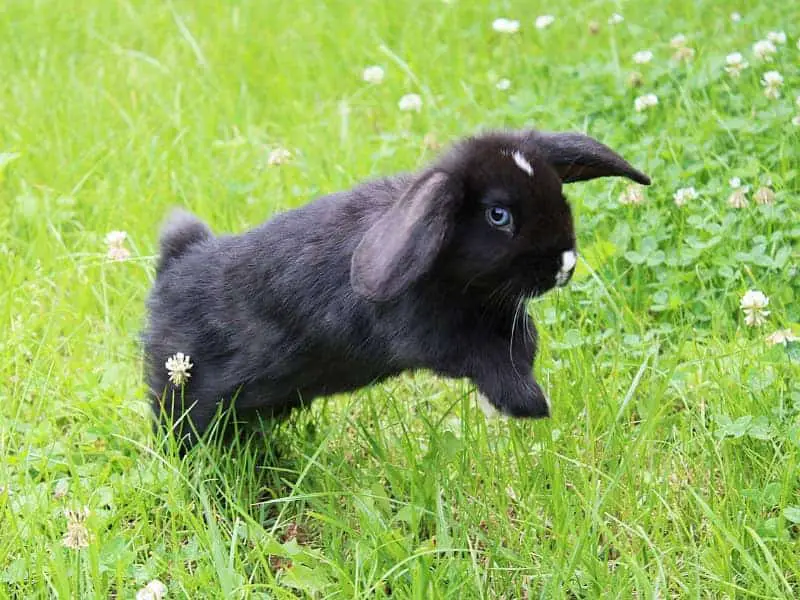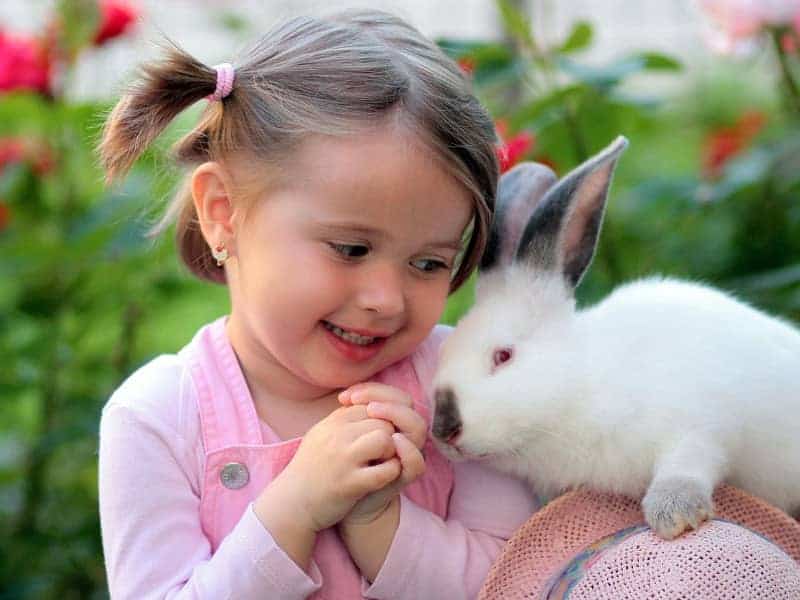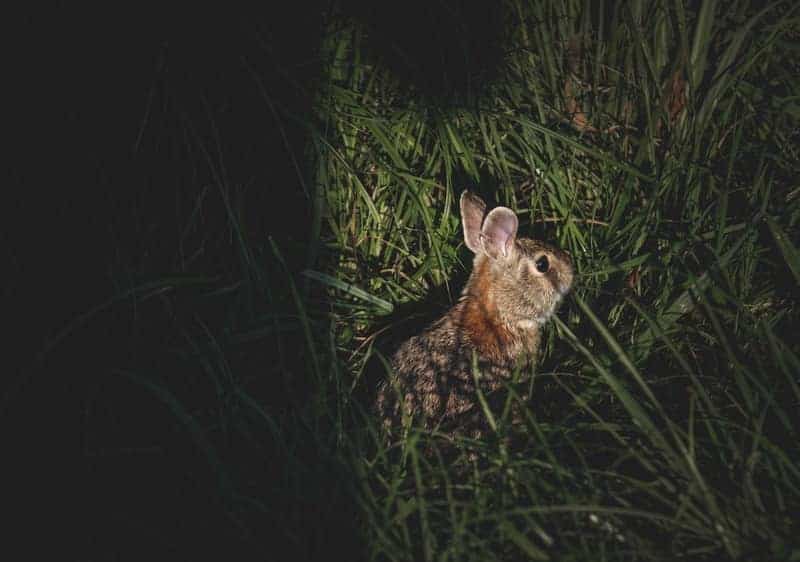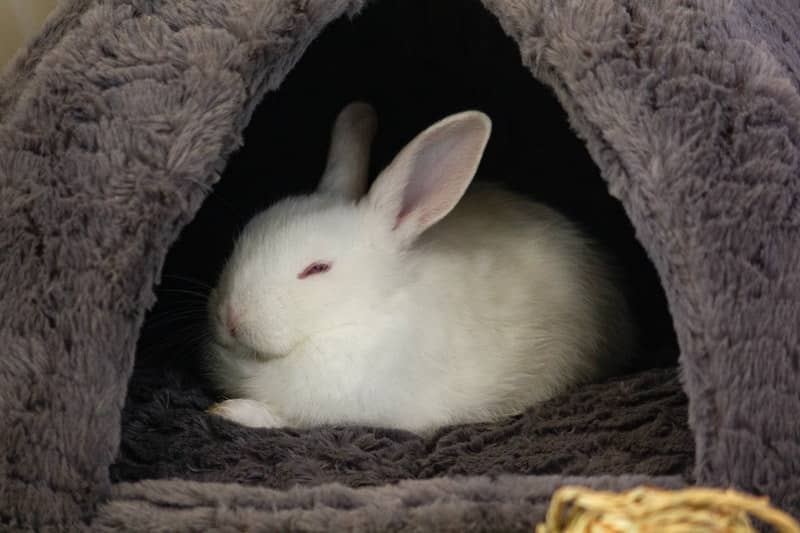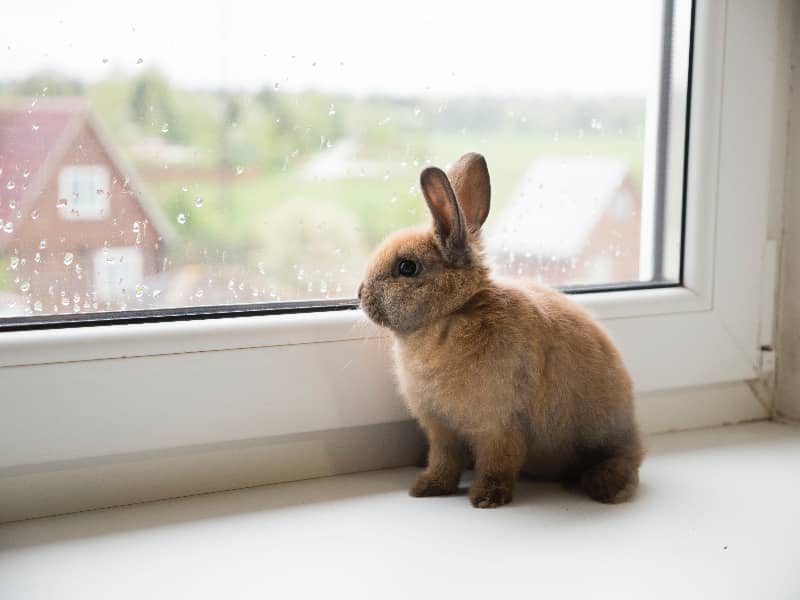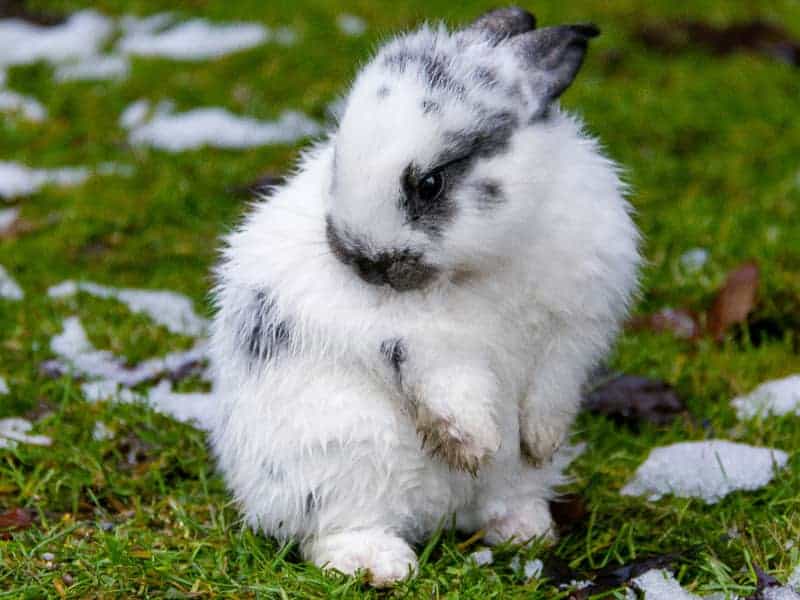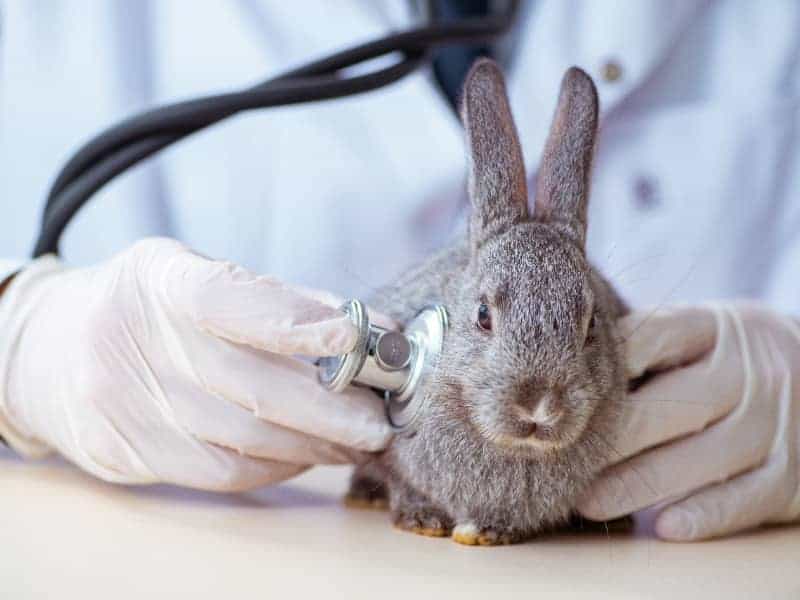
Rabbit tumor
Rabbits are not only cute, fluffy pets, but also sensitive creatures that can be susceptible to various health problems. One of the serious issues that rabbit owners should consider is the risk of a rabbit tumor. In this blog post, we'll take the time to explore this complex topic in detail so that you, as a rabbit owner, can be better prepared for what might lie ahead for you and your pet.
- Rabbit tumor
- What is a rabbit tumor?
- What is a tumor?
- Causes of tumors in rabbits
- Detection of tumors in rabbits
- Treatment options for rabbits with tumors
- Preventive measures against tumors in rabbits
- The emotional burden for pet owners
- The financial aspects of tumor treatment in rabbits
- Long-term care and quality of life
- Palliative care and difficult decisions
- Prevention and risk factors
- After the treatment: What you should pay attention to
- The role of the veterinarian: selection, trust and communication
- Emotional support for pet owners
- Summary and conclusion: Rabbit tumor
What is a rabbit tumor?
A tumor is an abnormal proliferation of cells and can occur in various organs and tissues of the rabbit. Basically, it is a collection of cells that divide and grow uncontrollably. This can be benign, meaning that the tumor is not invasive and does not spread throughout the body. However, there are also malignant tumors that are invasive and can spread to other parts of the body.
Why is the topic relevant?
Tumors in rabbits are a serious health concern and can significantly affect the well-being of the animal. Early detection and treatment are critical to prolonging your rabbit's life and maintaining its quality of life. In addition, some tumors can be painful and require immediate medical intervention.
What will the blog post cover?
In this post, we will cover various aspects of rabbit tumors, from symptoms and diagnostic methods to the various treatment options and associated risks. Also, we will address emotional support for pet owners and some frequently asked questions.
What is a tumor?
When it comes to rabbit health, tumors are a topic of concern for many owners. These worries are not unfounded, because tumors can bring various complications depending on their type and location. In this section, we clarify what exactly a tumor is, what types there are, and why they are relevant to rabbits.
Definition and categories
A tumor is an uncontrolled cell division that results in an abnormal tissue mass. Tumors can occur in almost any organ or tissue in a rabbit's body. There are two main categories of tumors: benign and malignant. Benign tumors are usually not life-threatening and do not spread throughout the body. However, they can cause problems because of their size and location. Malignant tumors, on the other hand, have the potential to spread to nearby tissues and even distant organs, making them much more dangerous.
Difference between benign and malignant
The main difference between benign and malignant tumors is their behavior. While benign tumors are localized and do not spread, malignant tumors have a tendency to invade other parts of the body. Thus, a malignant tumor is invasive and can metastasize, meaning it can spread to other parts of the body through the blood and lymphatic systems. Therefore, early diagnosis and treatment is particularly important.
Relevance for rabbits
Tumors can occur in rabbits just as they do in other animals and humans. The risk of developing tumors increases especially in older rabbits. Some breeds or genetic lines may be more susceptible to certain types of tumors than others. Because a tumor can significantly affect a rabbit's quality and length of life, it is important to have regular veterinary examinations.
Causes of tumors in rabbits
The development of a tumor in a rabbit is a complex process that can be influenced by a variety of factors. Although the exact cause often remains unknown, there are some key factors that can be considered as potential triggers. In this section, we will highlight these factors in more detail.
Genetic factors
Genetics plays a significant role in susceptibility to tumors. Some rabbit breeds or lines may be genetically predisposed, meaning they are at higher risk for developing certain types of tumors. It is important to note that genetics alone are not sufficient to cause a tumor, but they do increase the likelihood of tumor development.
Environmental conditions
Environmental factors such as exposure to chemicals, smoke, or radiation can also contribute to the development of tumors. Some studies have shown that rabbits living in a polluted environment have a higher risk of health problems, including tumors. Therefore, it is advisable to keep your rabbit's environment as safe and clean as possible.
Nutrition
Although the data are not conclusive, there is evidence that an unbalanced diet could increase the risk of developing tumors. A diet rich in fats and poor in nutrients could weaken the immune system and thus increase susceptibility to various diseases, including tumors.
The causes of tumors in rabbits are many and often interrelated. Therefore, it is important to take a holistic approach to the health and care of your rabbit to minimize the risk of tumor development.
Detection of tumors in rabbits
Recognizing a tumor in a rabbit can be a challenging task, especially because many of the symptoms can also indicate other health problems. In this section, we will look at how to recognize signs of a tumor in your rabbit and what the next steps should be.
Physical signs and symptoms
In rabbits, tumors can often be noticed by visible changes such as swellings, lumps or bumps. However, these are not always obvious, especially if they occur in internal organs. Other symptoms may include weight loss, loss of appetite, and a change in behavior. If you notice any of these changes in your rabbit, you should see a veterinarian immediately.
Diagnostic methods
The diagnosis of a tumor usually requires a series of examinations. These often include blood tests, X-rays and ultrasound. In some cases, a biopsy may also be required to determine the type of tumor. Only then can a specific treatment plan be developed.
Importance of early detection
Early detection of a tumor is crucial for the prognosis and treatment options. The earlier a tumor is detected, the more treatment options are available and the better the chances of cure. In view of this, regular veterinary examinations are essential for rabbits.
Recognizing a tumor is the first, important step in dealing with this serious disease. By paying attention and acting quickly, you can significantly improve the chances of successful treatment.
Treatment options for rabbits with tumors
Diagnosing your rabbit with a tumor can be an emotional and stressful time. But it's important to act quickly and work with your veterinarian to develop a treatment plan. In this section, we'll focus on the different treatment options available to give your furry friend the best chance at recovery.
Surgical removal
Surgical removal of the tumor is often the first choice, especially for benign tumors or tumors that have not metastasized. However, surgery comes with risks, such as the possibility of complications during surgery or anesthesia. It is important to carefully weigh the pros and cons of surgery with your veterinarian.
Chemotherapy and radiotherapy
For malignant tumors or if the tumor cannot be completely removed surgically, chemotherapy or radiation therapy might be considered. These therapies aim to slow or stop the growth of the tumor. However, they can also cause side effects such as nausea, hair loss and a weakened immune system.
Palliative treatment
In some cases, especially if the tumor is too advanced or if treatment would be too risky for the rabbit, palliative treatment may be the best option. In this case, the animal's quality of life is the primary concern. Painkillers and anti-inflammatory drugs can be used to keep the rabbit as comfortable as possible.
The treatment of a tumor in a rabbit is a complex process and should always be done in close cooperation with a qualified veterinarian. Various factors such as the type of tumor, the stage of the disease and the rabbit's general health play a role in choosing the most appropriate treatment method.
Preventive measures against tumors in rabbits
While it is impossible to completely eliminate the risk of a tumor in your rabbit, there are some preventative measures that can help minimize that risk. In this section, you will learn what preventive steps you can take to protect your rabbit's health.
Regular visits to the vet
The importance of regular veterinary checkups cannot be overemphasized. These visits allow for early detection of tumors and other health problems. Early intervention can often make the difference in treatment and prognosis.
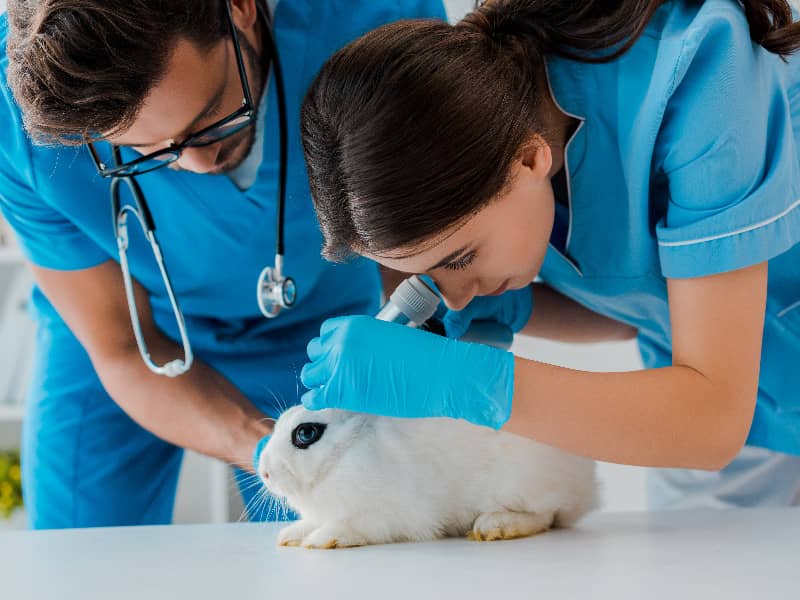
Healthy diet
A balanced diet, rich in fiber, vitamins and minerals, can strengthen the immune system and thus reduce the risk of developing tumors and other diseases. Avoid feeding a diet rich in fat and sugar, which can increase the likelihood of health problems.
Minimize environmental factors
Minimize contact with potentially harmful chemicals, smoke or radiation. A clean, safe and stress-free environment is essential to the health of any rabbit. Regularly check your rabbit's habitat for potential hazards and eliminate them to reduce the risk of tumors.
Prevention is always better than cure, and by taking appropriate preventative measures, you can greatly increase the chances that your rabbit will live a long, healthy life.
The emotional burden for pet owners
The diagnosis of a tumor in a beloved pet such as a rabbit can be an extremely emotional experience. In this section, we will talk about how to deal with the emotional burden and what support mechanisms are available.
Emotional stress and its management
The news that your rabbit has a tumor can lead to feelings of sadness, anxiety and overwhelm. It is important to accept these emotions and seek support, whether from family, friends or professional counselors. Some veterinary clinics even offer special counseling for pet owners in these situations.
The role of social support
Social support can be essential at such times. Veterinarians, pet groomers and other pet owners can offer valuable insight and advice. There are also online forums and social media groups where you can share experiences and information with others in similar situations.
Self-care and setting boundaries
While you're doing everything you can to provide the best possible care for your rabbit, it's important to think about your own health as well. Self-care strategies such as adequate sleep, a balanced diet and relaxation techniques can help you get through this difficult time.
The diagnosis of a tumor in your rabbit is undoubtedly a heavy burden. But it is important to remember that you are not alone and support is available, both for your pet and for yourself.
The financial aspects of tumor treatment in rabbits
Treating a tumor in a rabbit can not only be emotionally stressful, but can also present financial challenges. In this section, we will address the costs associated with treatment and discuss ways you can manage them.
Costs of the different treatment options
Surgery, chemotherapy, radiation therapy - all of these treatments can be expensive. Costs can vary depending on the veterinarian, the region, and the specific condition of your rabbit. It is wise to get several estimates and learn about financing options.
Insurances and financial aids
Pet health insurance can be a helpful way to minimize the financial burden. Some insurance plans even cover the cost of cancer treatments. Moreover, there are non-profit organizations that can offer financial assistance to pet owners in need.
Budget management and priorities
It is important to create a realistic budget for the treatment of your rabbit and to set priorities. Which treatments are absolutely necessary, and which could possibly be skipped without endangering the welfare of the animal? Consultation with your veterinarian can be very helpful.
The financial burden of tumor treatment is a serious matter, but there are several ways to manage the costs. Through thorough research and open communication with the veterinarian, you can create a plan that works for both your rabbit's well-being and your financial situation.
Long-term care and quality of life
When your rabbit has a tumor, subsequent care and maintaining a high quality of life become your most important concerns. In this section, we will cover how to provide optimal long-term care and promote your rabbit's enjoyment of life.
Pain management and comfort
After tumor treatment, whether surgery or chemotherapy, your rabbit may experience pain or discomfort. Pain management through medication and comfortable living conditions are essential. Ensure soft pads, easy access to food and water, and a stress-free environment.
Adjustments in everyday life
Depending on the location and type of tumor, daily adjustments may be necessary. You may need to adjust food, remove barriers in the cage, or allow more time for grooming. Your veterinarian can make specific recommendations to meet your rabbit's needs.
Regular monitoring and controls
After successful tumor treatment, regular veterinary checkups are critical to ensure that no new tumors appear. In addition to physical examination, blood tests and imaging such as ultrasound can be useful to monitor your rabbit's health.
Living with or after a tumor places special demands on your rabbit's care. However, with careful long-term care and regular monitoring, you can help your rabbit live as normal and happy a life as possible.
Palliative care and difficult decisions
There are moments when treatment of a tumor in a rabbit may not be successful or when the tumor is at an advanced stage where cure is unlikely. In such cases, palliative care comes into focus. This section is designed to help you understand and make some of the difficult decisions that are faced in such situations.
What is palliative care?
Palliative care aims to relieve symptoms and keep the quality of life for your rabbit as high as possible, without necessarily aiming for a cure. This may include pain management, nutritional support, and other comfort-enhancing measures.
Saying goodbye and the role of the veterinarian
The veterinarian plays a critical role in assessing your rabbit's quality of life and deciding when the time is right to say goodbye. It is a very personal decision, but your veterinarian can support you with professional expertise.
Ethical considerations
The decision to use palliative care or possibly end your rabbit's suffering often involves ethical questions. It is a matter of objectively assessing your rabbit's condition and making the decision that is best for the animal, even if it is emotionally very difficult.
The topic of palliative care and the difficult decisions involved is a sensitive but important one. Working with your veterinarian and perhaps consulting ethical guidelines can help you navigate through this difficult time.
Prevention and risk factors
No one wants to have to face the painful experience of having their rabbit suffer from a tumor. In this section, we will look at some preventive measures and risk factors that can help minimize the likelihood of tumor development.
Diet and lifestyle
Diet plays a critical role in the overall health of your rabbit and possibly in the prevention of tumors. A balanced diet rich in fiber and low in fats can be beneficial. Regular exercise also contributes to maintaining good health.
Genetic factors and age risks
Some rabbit breeds are more susceptible to tumors than others, and the likelihood may increase with age. While you can't change genetic factors, it's important to know these risks and screen accordingly early.
Environmental factors and exposure
Pollutants in the environment, such as cigarette smoke or pesticides, can increase the risk of developing tumors. Be sure to keep your rabbit away from such pollutants and have regular health checks to detect signs early.
Understanding preventive measures and risk factors is the first step to protecting your rabbit's health and reducing the likelihood of tumor development. A combination of good nutrition, regular health checks and a safe environment can make a big difference.
After the treatment: What you should pay attention to
The treatment phase may be over, but your rabbit's care is far from over. In this section, you will learn what to look for after your rabbit has been treated for a tumor.
Medication and aftercare
After tumor treatment, your rabbit will probably need medication to relieve pain or minimize the risk of infection. It is important to follow the veterinarian's instructions carefully and strictly adhere to the medication schedule.
Behavioral changes and signs of relapse
Pay careful attention to your rabbit's behavior and physical conditions. Behavioral changes such as lethargy, loss of appetite, or increased scratching may be signs of complications or even a relapse. Another visit to the veterinarian may be necessary.
Long-term monitoring and regular checks
Follow-up care includes not only the immediate period after treatment, but also requires long-term monitoring. Regular veterinary visits are essential to ensure that there are no new signs of tumors or other health problems.
The period following treatment of a tumor in your rabbit will continue to require a great deal of attention and care. Through close monitoring and strict adherence to medical recommendations, you can minimize the risk of complications and promote your rabbit's health and well-being.
The role of the veterinarian: selection, trust and communication
A good veterinarian is invaluable throughout your rabbit's tumor experience. In this section, we will go over how to choose an appropriate veterinarian, how to build trust, and why open communication is so important.
The selection of a suitable veterinarian
Choosing a veterinarian who is experienced in dealing with rabbits and specifically tumor disease can make a big difference. Ask for recommendations, read online reviews and have preliminary conversations to make the best choice possible.
Building trust
A veterinarian you trust is critical to the success of treatment. Good veterinarians take their time, thoroughly explain the diagnosis and treatment options, and answer all your questions. A trusting relationship makes it easier for you to make clear decisions in difficult times.
Open communication
Effective communication between you and your veterinarian is essential, especially when dealing with issues as complex and emotional as a tumor. Make sure you get all the information you need and don't hesitate to ask questions or express concerns.
The relationship with your veterinarian is a key aspect in dealing with a tumor in your rabbit. The better the communication and the higher the trust, the better the chances for a successful treatment and a high quality of life for your rabbit.
Emotional support for pet owners
The moment you learn that your rabbit has a tumor can be emotionally overwhelming. During this difficult time, it is important to think about your own emotional needs as well. Here are some tips on how to find support and maintain your emotional balance.
Dealing with the diagnosis rabbit tumor
The diagnosis of a tumor in your rabbit can cause a roller coaster of emotions - from shock and sadness to fear and uncertainty. It is perfectly normal to go through these emotions. What is important is how you deal with them. Talking with friends and family can be helpful, as can professional counseling. Open dialogue with your veterinarian can also be emotionally relieving and help determine the best course of action for your rabbit's treatment.
Support groups and forums
In the age of the Internet, it's easier than ever to find like-minded people. Online support groups and forums can be a valuable resource if you're looking for practical advice or just someone who understands your worries and fears. Sometimes just knowing you're not alone helps. Local animal health initiatives and associations often offer support and information sessions as well.
Advice for emotional balance
Self-care is crucial in stressful times like these. This includes getting enough sleep, eating healthy and exercising, but also moments of relaxation and mindfulness. Whether it's meditation, yoga or simple walks, find out what helps you maintain your emotional balance. Sometimes writing a diary or keeping a health blog for your rabbit can also be helpful in organizing thoughts and worries.
The emotional burden of diagnosing your rabbit with a tumor should not be underestimated. By paying attention to your own emotional needs and taking advantage of the available support services, you can better manage this difficult process.
Summary and conclusion: Rabbit tumor
Diagnosing a tumor in your rabbit can be a challenging time for both you and your pet. This blog post has attempted to provide comprehensive information and recommendations for all aspects of this issue, from early detection to various treatment options to emotional support for pet owners.
Main points of the blogpost
- Early detection and diagnostics: worth knowing about symptoms and the important first steps after a tumor diagnosis.
- Treatment options: An overview of surgical interventions, medications, and alternative therapeutic approaches.
- After treatment: the importance of follow-up, nutrition, and psychological care for successful recovery.
- Types of tumors: different types of tumors and their respective treatment options.
- Emotional support for pet owners: how to cope with the diagnosis and where to find support.
Final recommendations
It is imperative to act quickly when a tumor is diagnosed and to work closely with a qualified veterinarian. Try to be well informed and use all available resources, whether through professional literature, online forums, or face-to-face conversations with experts. Your emotional state should not be disregarded; find ways to manage your emotions and get support if needed.
Call
If this blog post has been helpful to you, feel free to share it with other pet owners who may also be in a similar situation. And remember to have your rabbit checked regularly at the vet - early detection is the key to successful treatment. If you have any questions or suggestions, we welcome your feedback in the comments.
Author

-
Garden animal - A life with nature
Welcome to my animal blog! My name is Dirk and I am happy to take you on my journey through the fascinating world of animals and gardening.
Born 54 years ago, I have had an insatiable curiosity for the animal world around me since childhood. Although I have moved professionally in other industries, my true passion has always been animals and nature. It is remarkable how a small garden has become such an important part of my life.
Many of my fondest memories are associated with the animals that share our home. Whether it's the curious squirrels that scurry across the trees in the morning, the colorful variety of birds that visit our feeders, or the busy bees and butterflies that pollinate our flowers, every moment with them is invaluable to me.
This blog is my contribution to share my experiences, discoveries and insights with like-minded people. Here I will share stories of unforgettable encounters with animals, give tips on gardening and creating wildlife-friendly habitats, and take you on my journeys through nature.
Thank you so much for being here!
Cordial,
Dirk aka garden animal
Last posts
- 27. February 2024PetsVeganes Hundefutter – Grün und Gesund?
- 18. January 2024ChickensOregano für Hühner
- November 27, 2023HamsterDiurnal hamsters
- November 24, 2023HamsterHamster hammock

